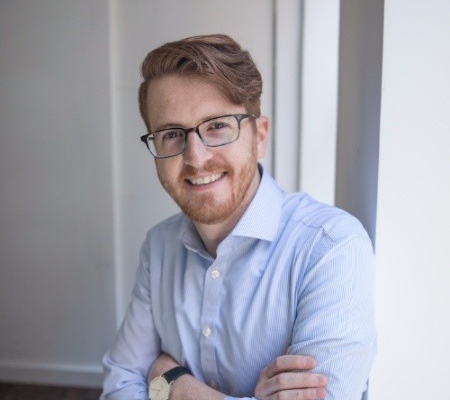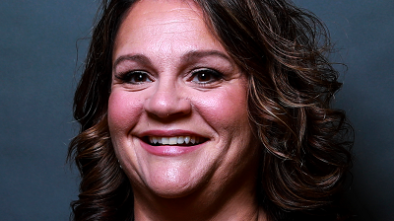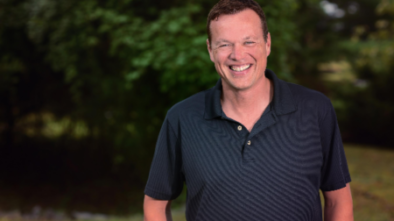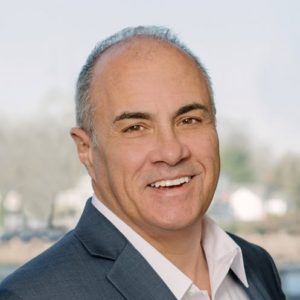Interview with NJII’s Will Lutz: Inside the Merck Digital Sciences Studio Collaboration
Merck, the pharma company headquartered in Rahway, and the New Jersey Innovation Institute (NJII), a division of the New Jersey Institute of Technology (Newark), recently announced that they would collaborate on a 10-month accelerator program.
The program, called Merck Digital Sciences Studio (MDSS) is a hands-on accelerator providing mentorship, coaching, training, support, community and investment in digital health and biotech startups. It will take place both in New Jersey at NJIT’s startup incubator and in Cambridge, Mass. at a location to be announced. There are six spots available for startups at each location.
NJTechWeekly.com spoke to Will Lutz, general manager for entrepreneurship, commercialization, and enterprise development at NJII, whose team is implementing MDSS. He elaborated on what’s coming as MDSS gets underway.
ES. How did NJII and Merck get acquainted?
WL. Simon Nynens, CEO of NJII, had a personal connection at Merck’s Global Health Innovation Fund, which is Merck’s private venture capital arm. David Rubin [a managing director and a founding partner of the GHI Fund] made the connection to Simon and said that Merck was thinking about establishing an accelerator. They’d be training startups and also deploying capital in very, very early companies. Simon told him that training, coaching, and supporting startups was what we do at VentureLink@ NJIT and NJII, and he asked him to come and check it out. And they did.
They came over, we gave them a tour and we talked about what they were thinking and what we were thinking. We also told them about some of our initiatives. Biopharmaceuticals are a big economic driver in the state; they are such an important part of our state’s economy. We started talking with them about that, and what we can do and what they can do.
The long and the short of it is that I ran a mini accelerator called BioFoundry that was funded by a grant from the U.S. EDA. And the grant was finished this past December [December 2021], about the same time we connected with Merck. We had learned so much. We knew how to run the program they wanted and support startups, but we didn’t have money to invest. They had the money to invest. We combined forces and worked together. So, the programming and training we developed for BioFoundry will be used in the Merck Digital Sciences Studio.
ES: I understand that there will be two locations, one in Newark at VentureLink and another in Cambridge. Can you tell us about that?
WL: Like at the NJII location, the person running the Cambridge accelerator will be an NJII employee. We are handling staffing, operations, and programming. All that goes through us. The only exception is that each location will have an Executive in Residence. It makes more sense for Merck to handle that.
We both agreed that having the accelerator in both places was important. And that was part of the discussion with Merck when we first got together. Boston has a very strong biotech ecosystem. It is different from New Jersey. We are more spread out. They are more concentrated physically. And they approach different fields and different industries in both.
We wanted to have the two cohorts but not have friction between them. They both have their assets. So, we decided to bifurcate some of the programming. The Cambridge location became AI [artificial intelligence] for drug discovery focused. There is a lot more activity in AI for drug discovery there than here. Here, we think that biomanufacturing and biotech supply chain startups are much more prevalent. We ended up with two different locations with their own vertical focus. We will be looking for mentors that match the companies in their different verticals. We believe this will give us some critical mass that will make the cohorts even more valuable.
ES: When will the first cohorts begin?
WL: Applications are open now. They close at the end of August. We want a start date of October 1. Because this is the first cohort, I’m sure that we will be a little flexible as we get our feet wet. But we’re targeting October 1, to start the first cohort.
We are expecting to host six companies in Newark and six companies in Cambridge.
ES: When I think biotech, I usually don’t picture digital technologies being a part of it. Can you explain?
WL: One of the reasons Merck wanted to talk to NJIT is that they wanted to capture technology that was just coming out of the universities. We want Princeton and Rutgers and Stevens and NJIT to look at technologies that are being commercialized at their earliest moment so we can see if we can support and grow them. So yes, we are very much focused on digital tech and software primarily.
ES: You say that MDSS “strives to be a pump not a filter.” What do you mean?
WL: We are open to all. In New Jersey, for example, we believe that we’ll be seeing companies focused on biotech supply chains, biomanufacturing and e-clinical issues. And we are probably going to see a lot of companies focused on AI for drug discovery in Cambridge. However, if we think we can help and make a difference with a company, if they’re somewhere in the digital or digital health or biotech space, we will probably accept them.
The most important part is that the corporate partners that are creating this accelerator, want to be engaged with the companies. Merck wants to be doing pilots with these companies. McKesson wants to be supporting the companies and seeing what assets they can bring to the table. Microsoft wants to be very active in supporting these companies with their digital health offerings. And that might be more important than any one specific industry term we put on a website. We want to help these companies commercialize.
We want all comers to apply to us. The important thing in accepting them will be if we think we can move the needle for these startups.
ES: What about funding for the startups?
WL: Each company will receive $150,000 in a SAFE [Simple Agreement for Future Equity]. There is no provision for equity beyond the SAFE. We didn’t want to get into negotiations about how much each company’s valuation was.
The corporate partners, Northpond Ventures (Cambridge, MA) and McKesson Ventures (San Francisco), Merck and Microsoft, which provide the support for the startups, are hoping to make further investments in the companies after they graduate from the MDSS, when they are ready to raise their next round. However, we can’t guarantee the investment because it depends on the company and where they are. Graduation will be accompanied by some kind of demo day or showcase event.
ES: Is there anything else you’d like the readers to know about MDSS?
WL: I just want to reiterate something I said before. I’ve been on the other side of the table and I know how hard it is when someone says ‘no.’ But as an accelerator, sometimes you say no to great companies, not because they’re not good companies or not good investments, but because we don’t think that we can help them. We don’t want to be just a checkbook. That’s not what we’re in this to do. Money’s great. You need money; that’s part of what this is. And it is good money for early-stage investment for an accelerator. But this is very much more about supporting startups and seeing what we can do for them.




